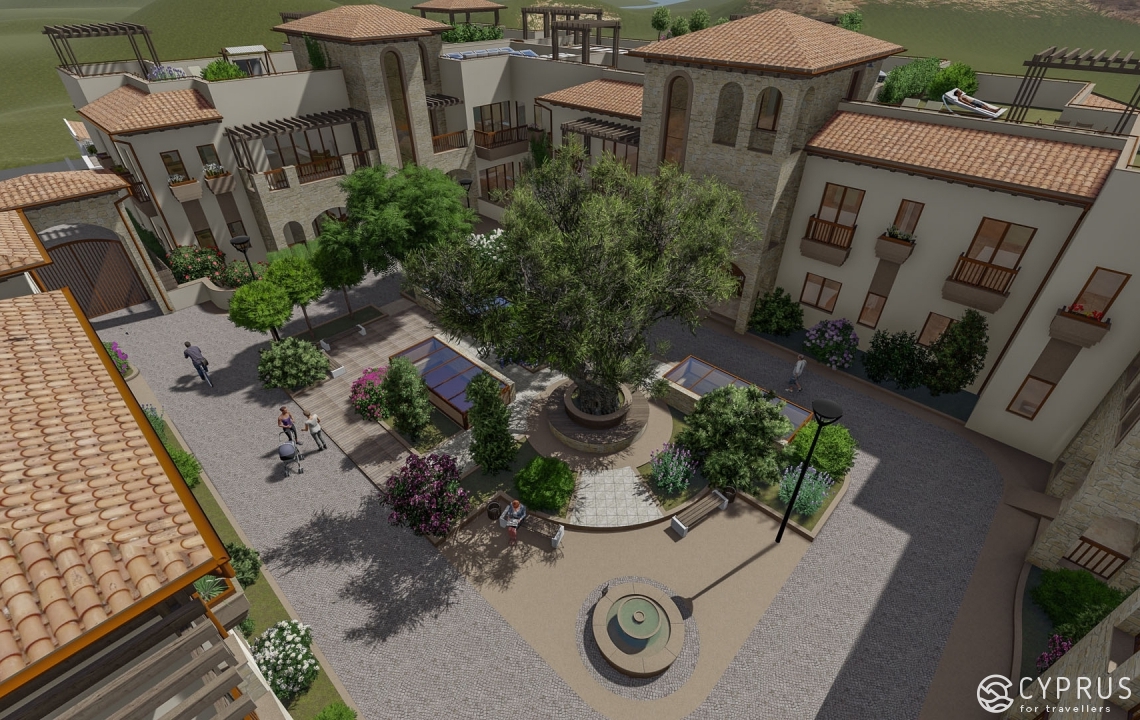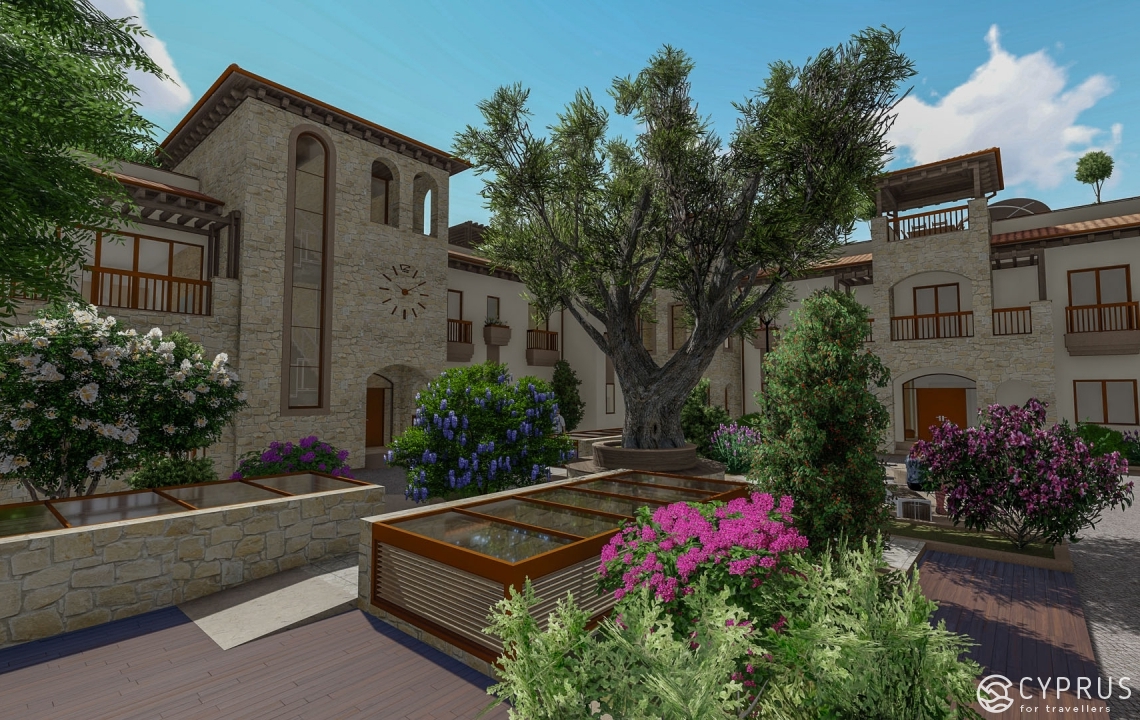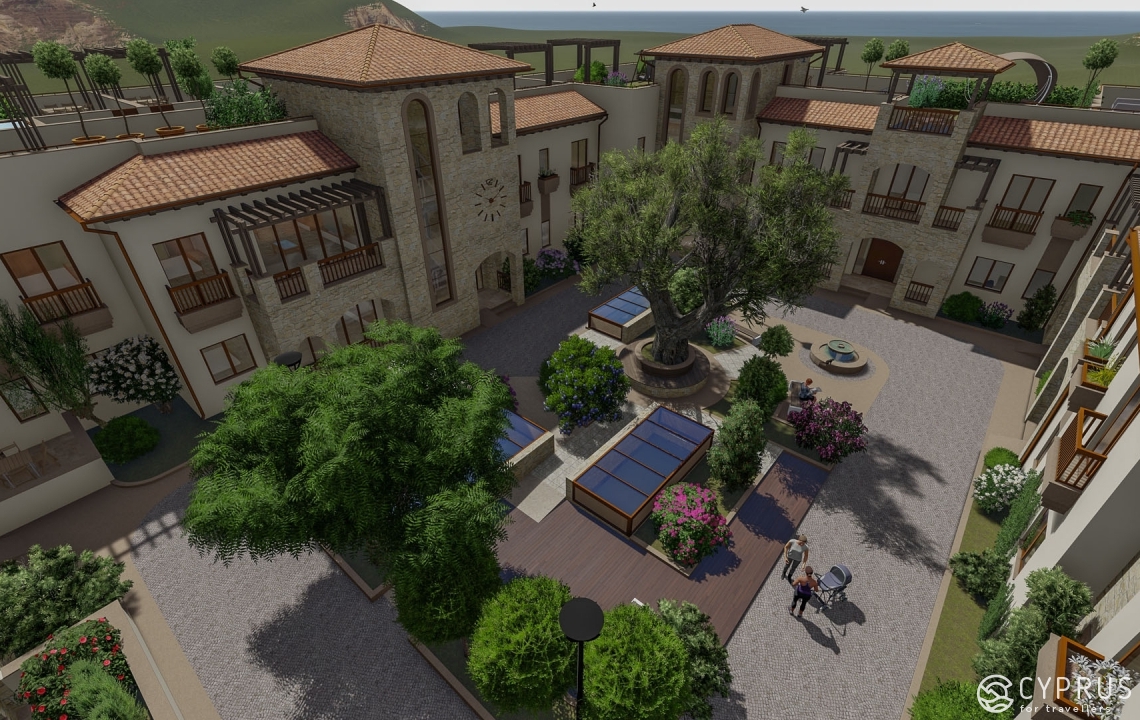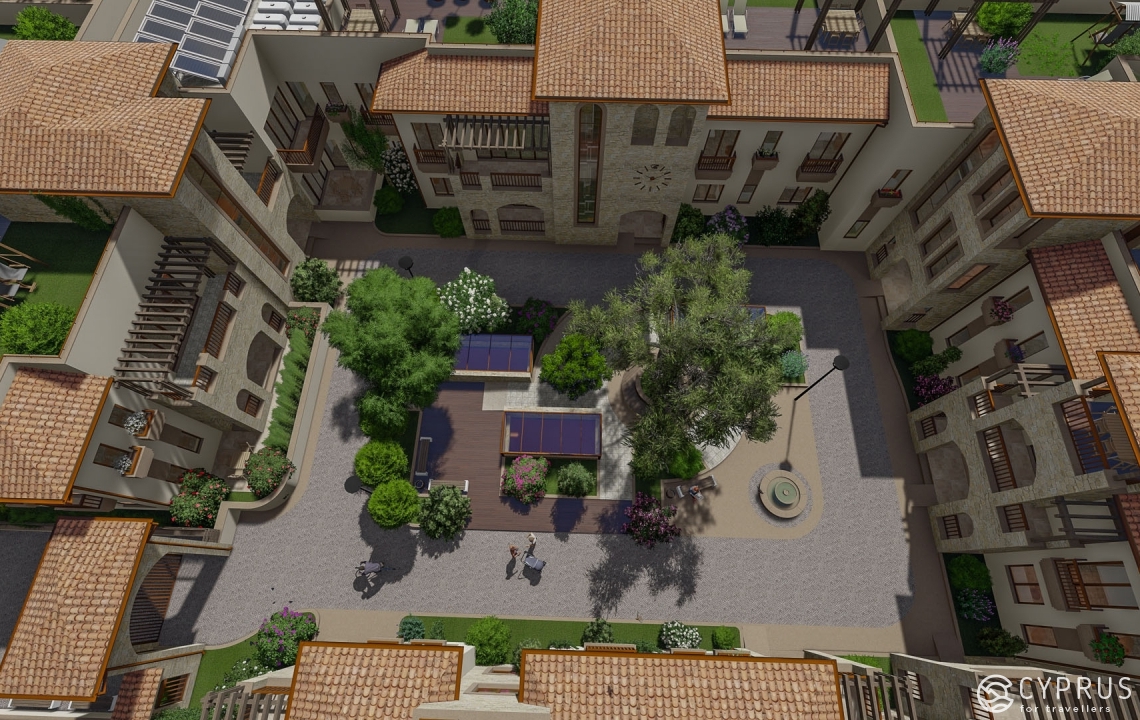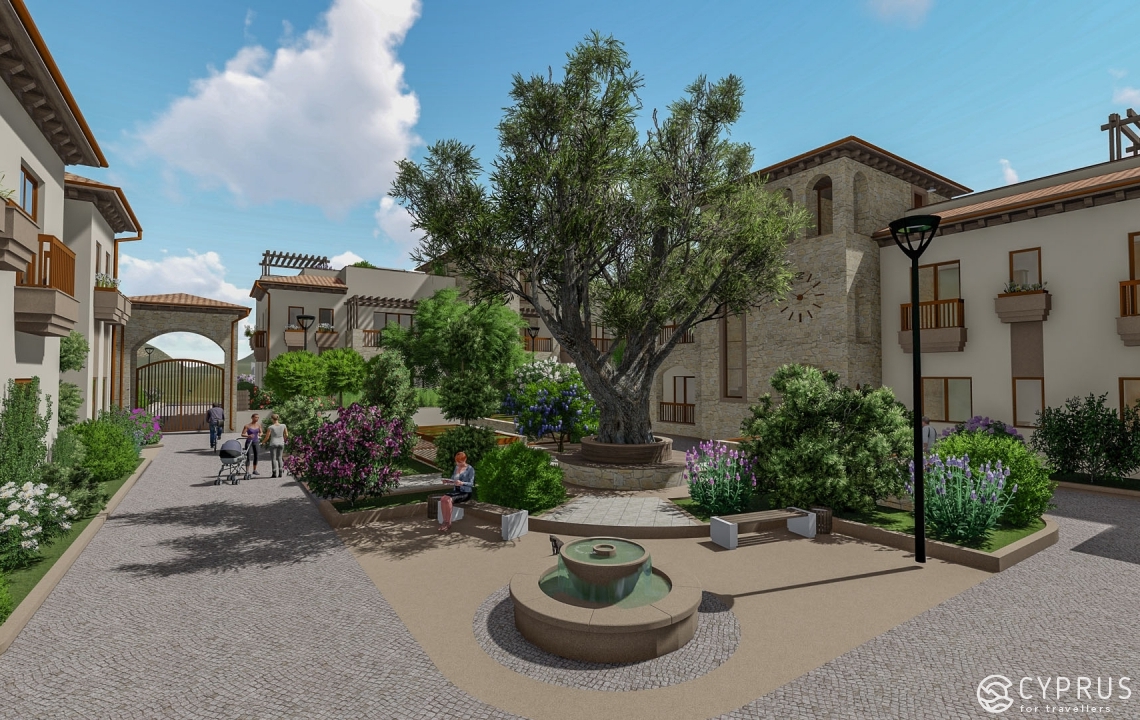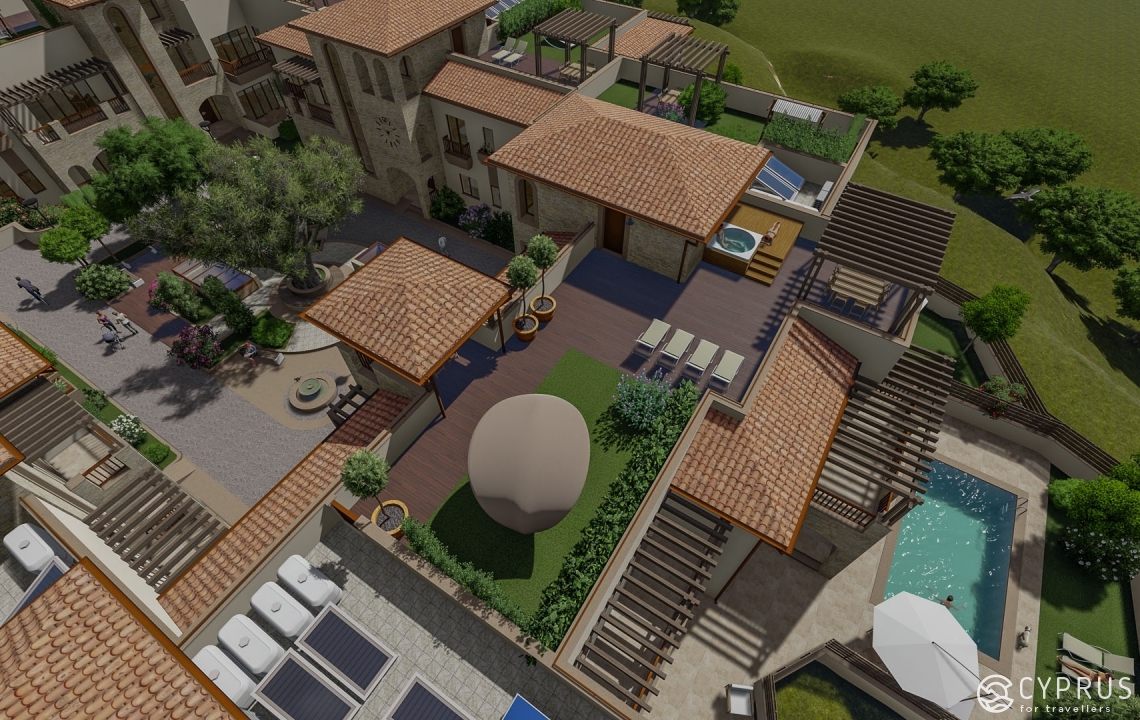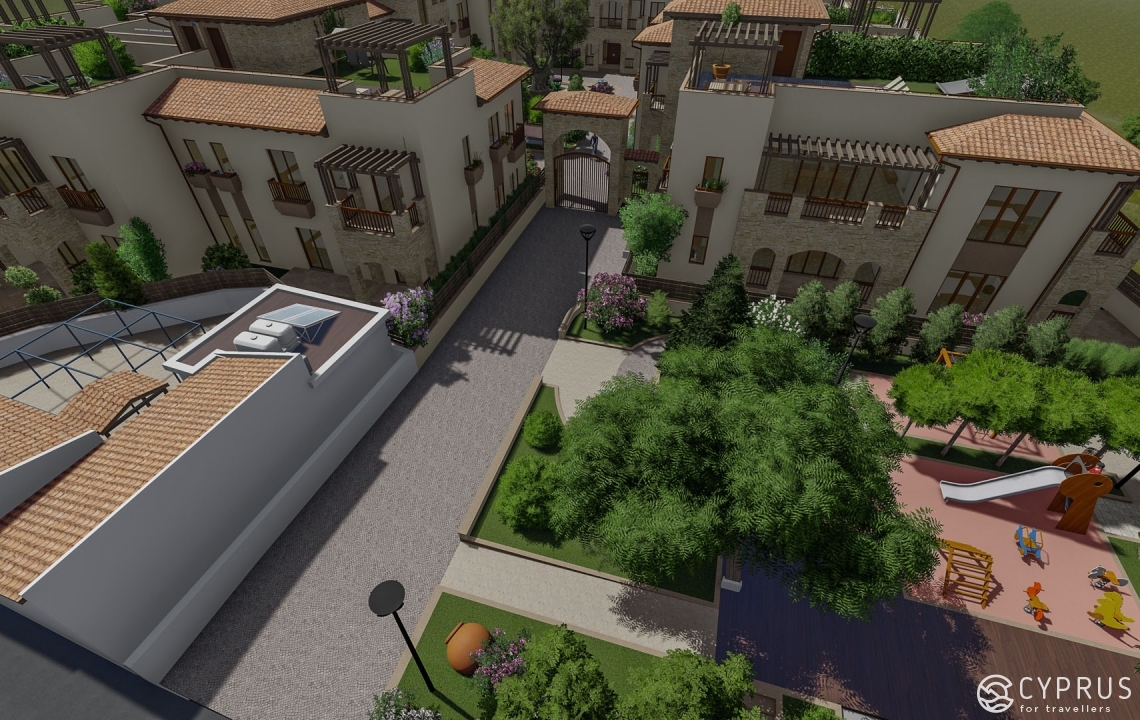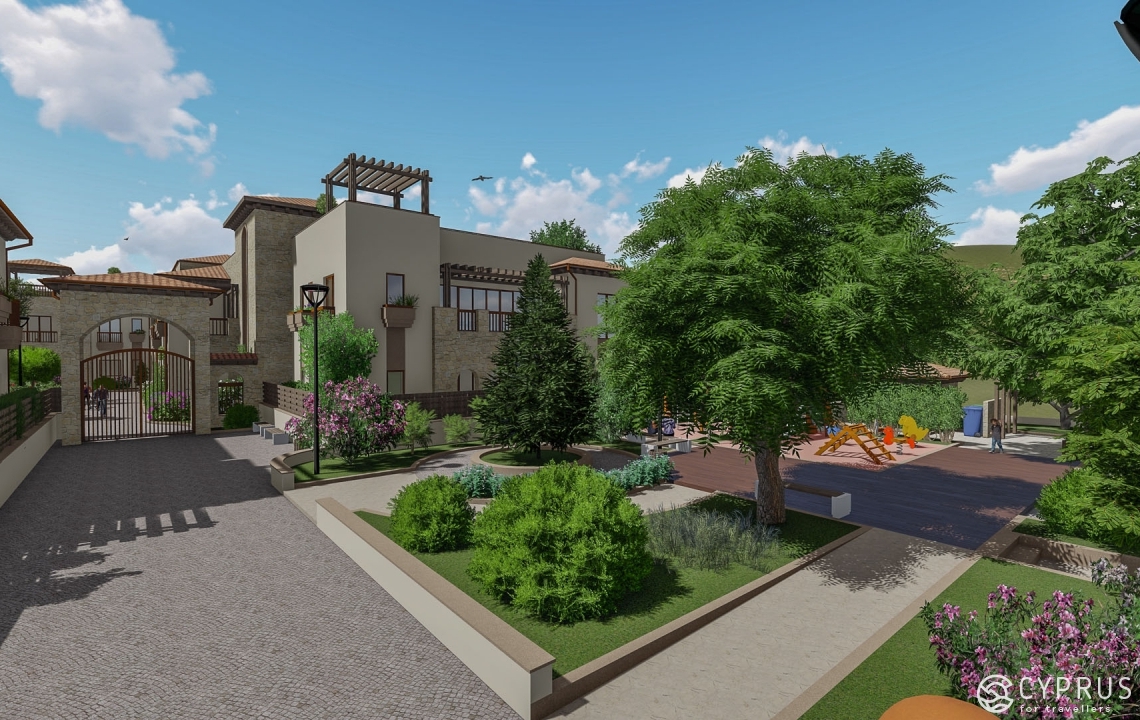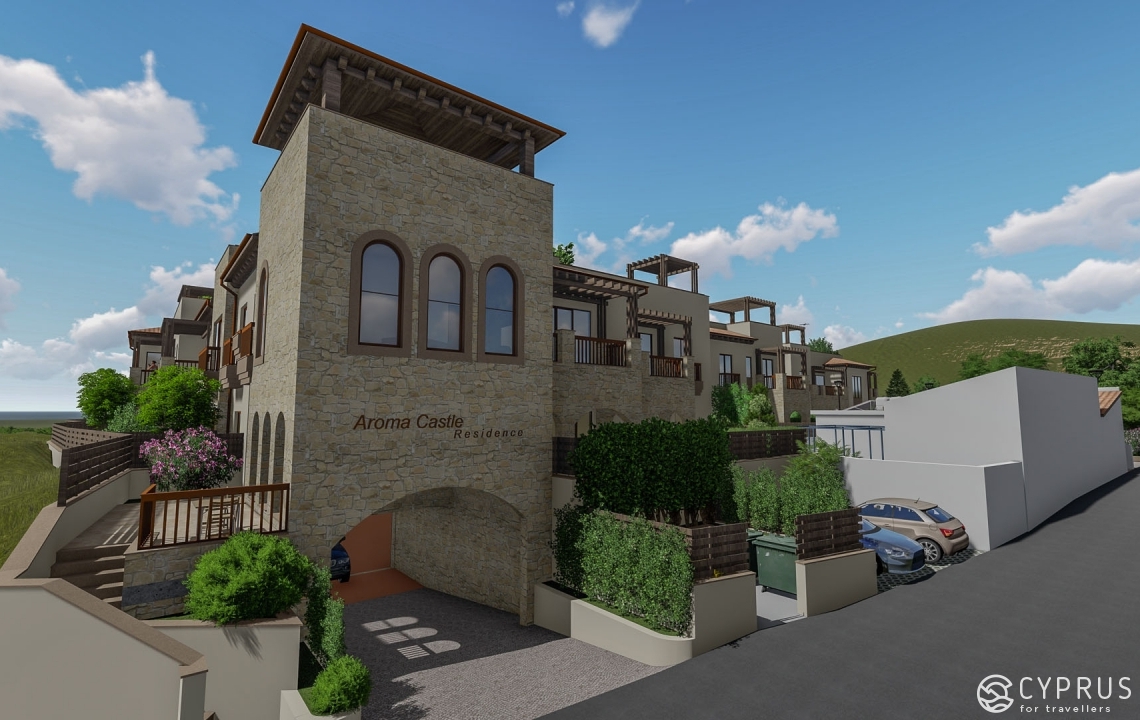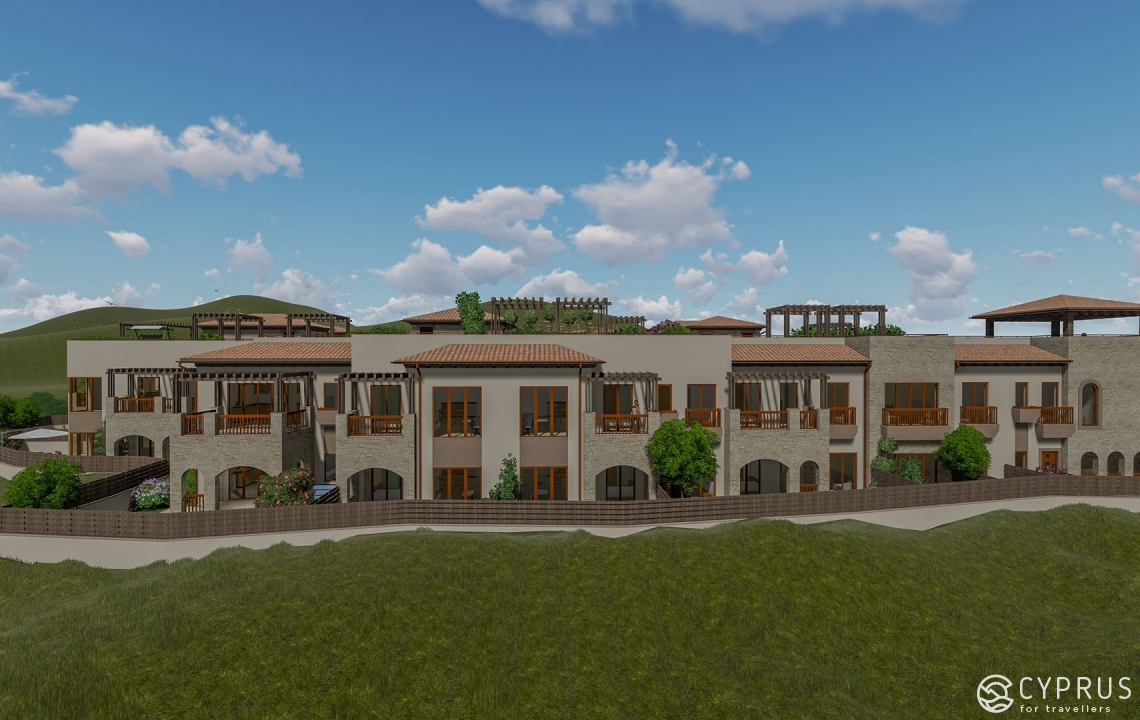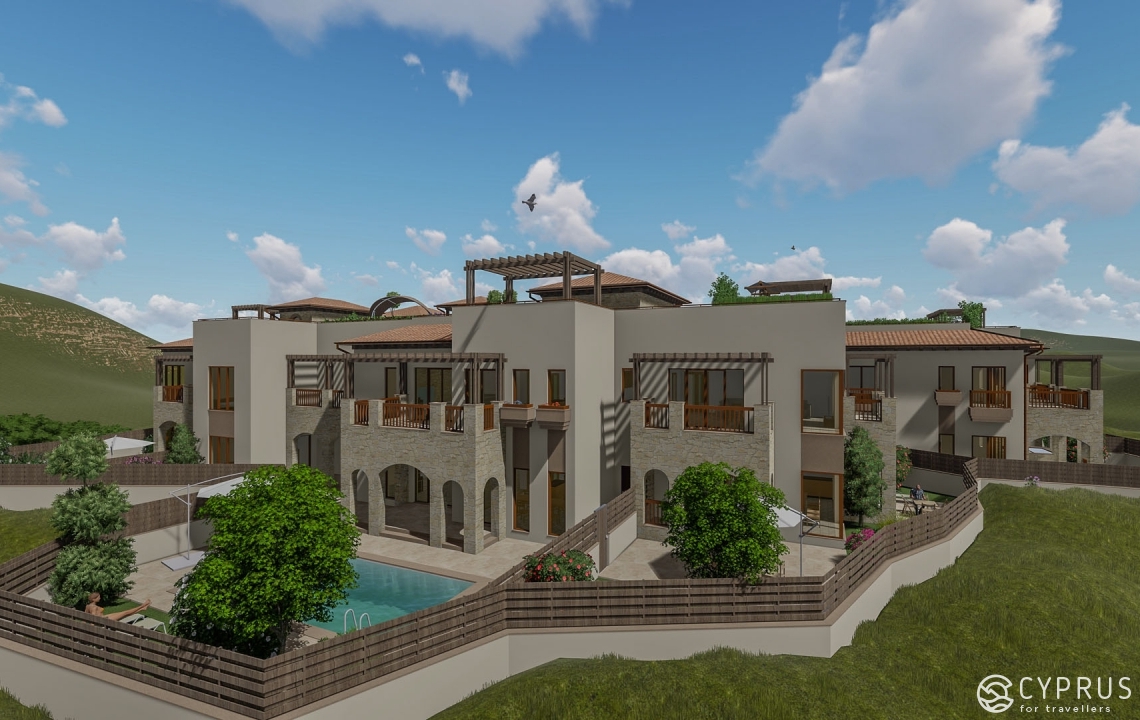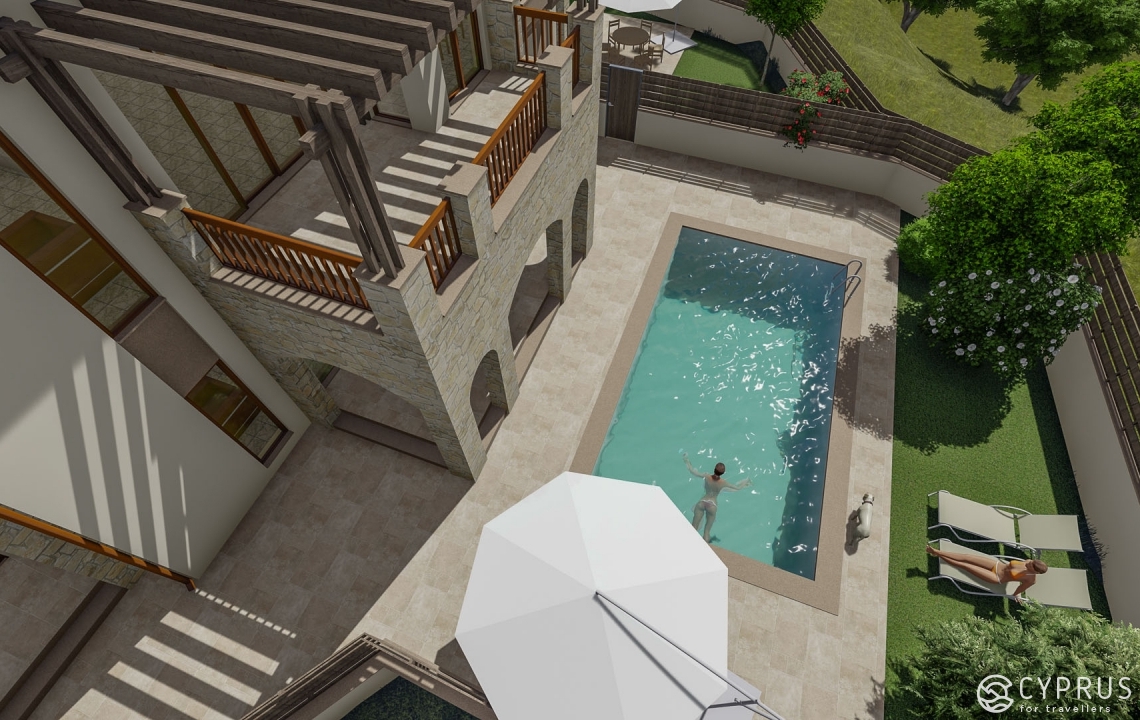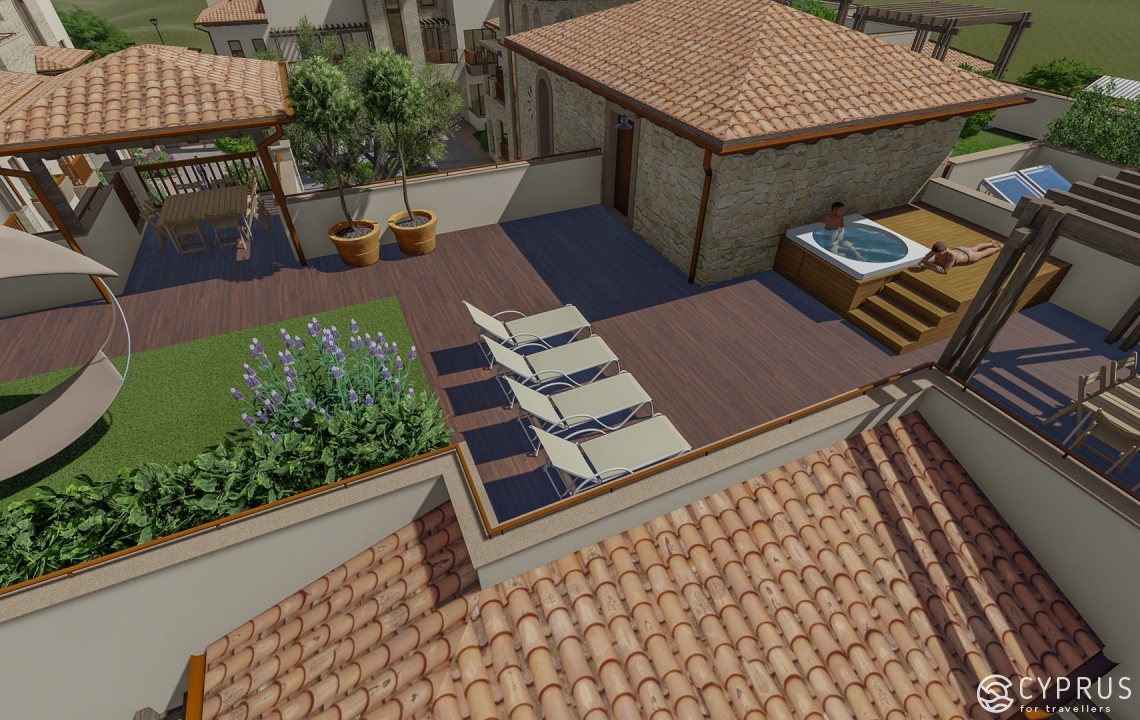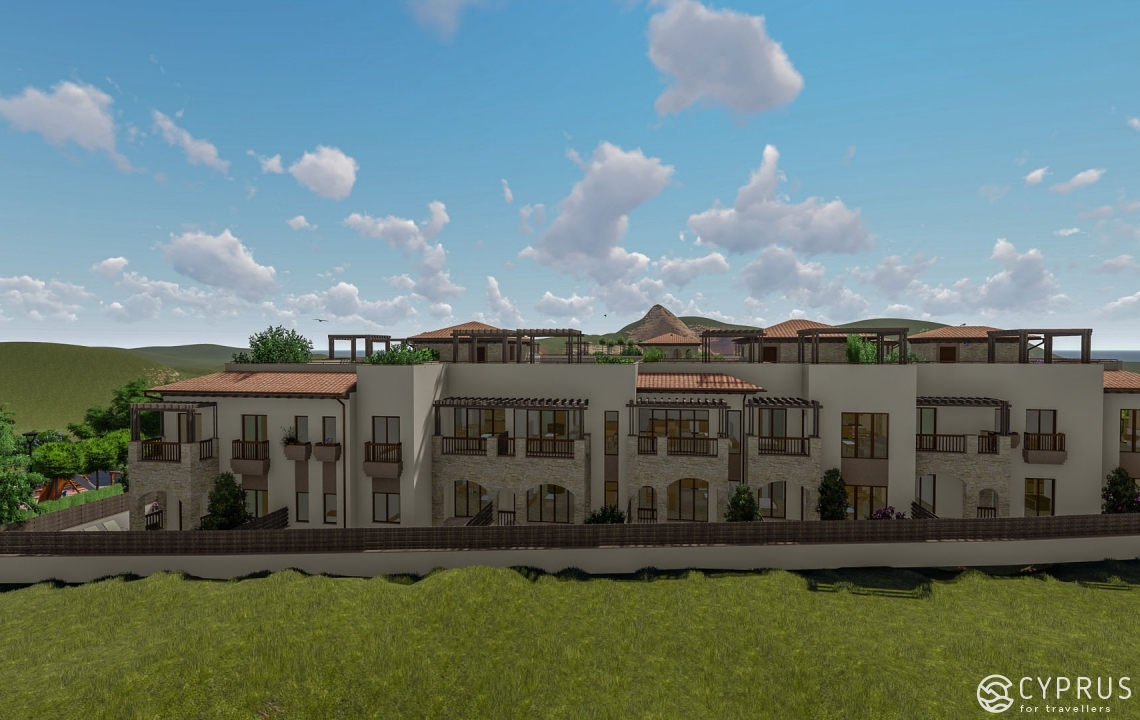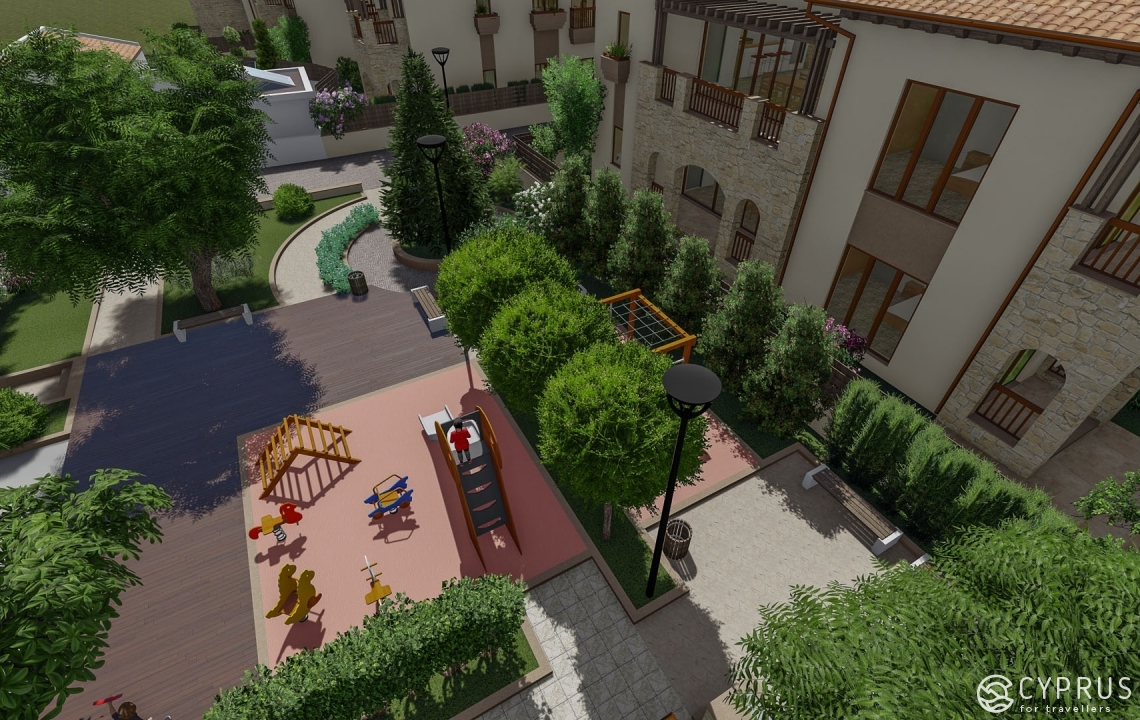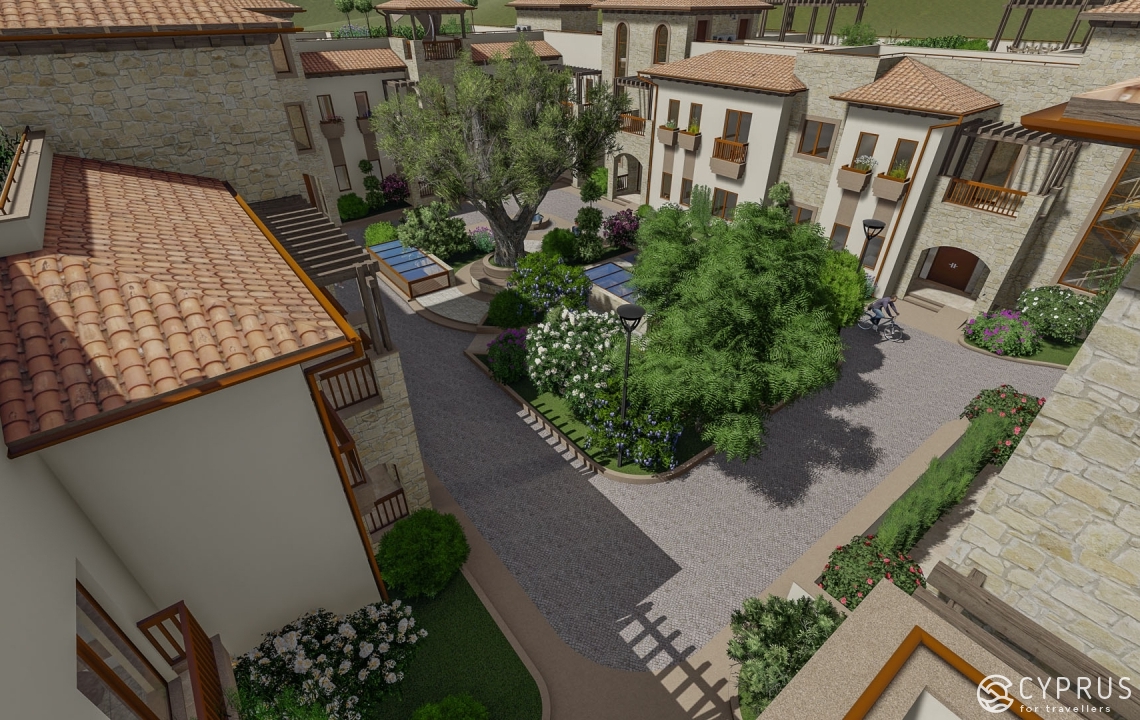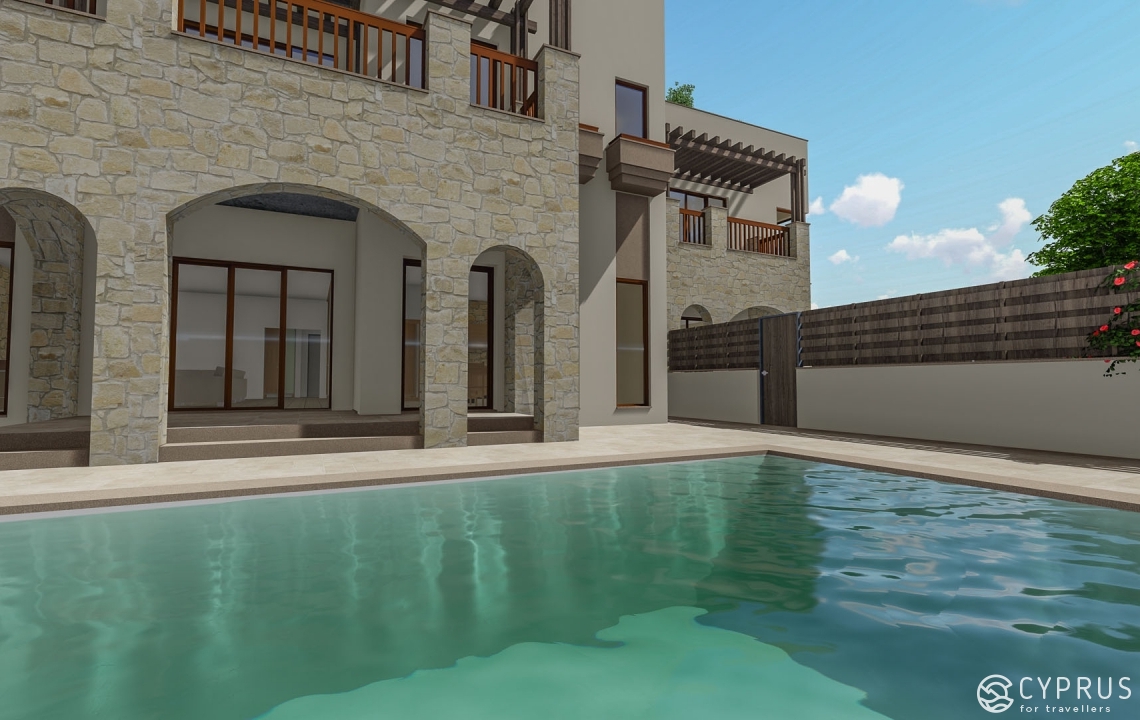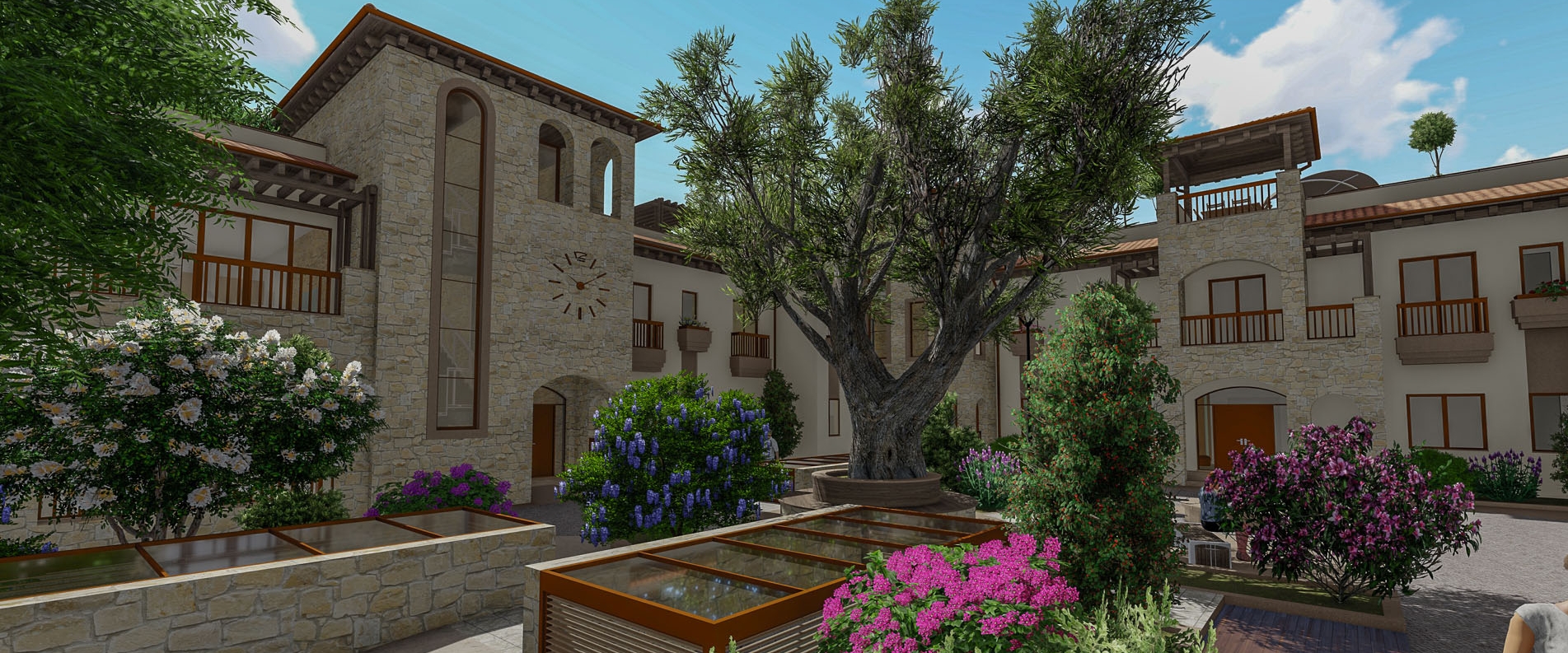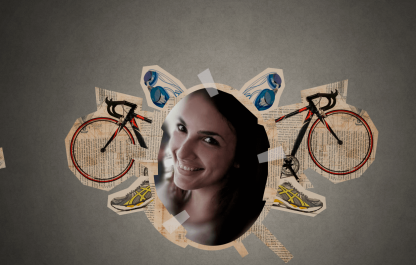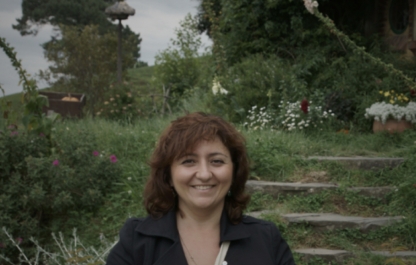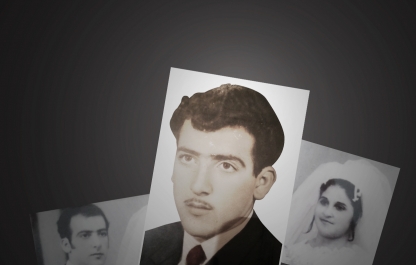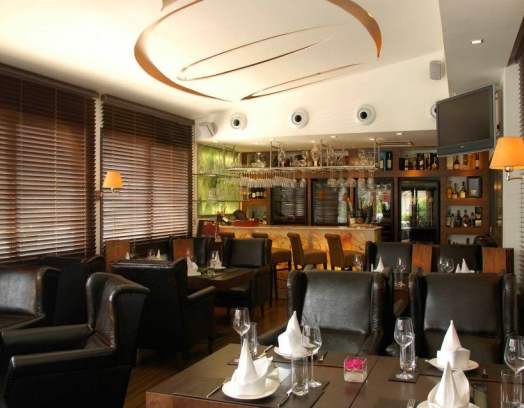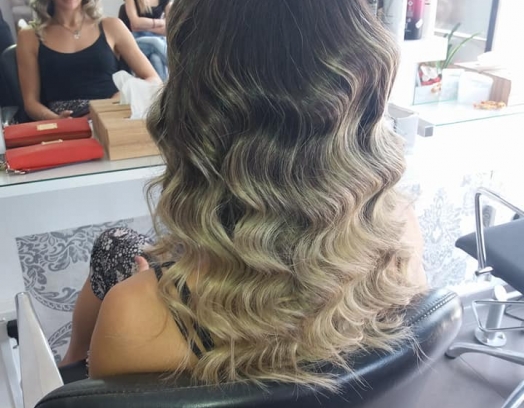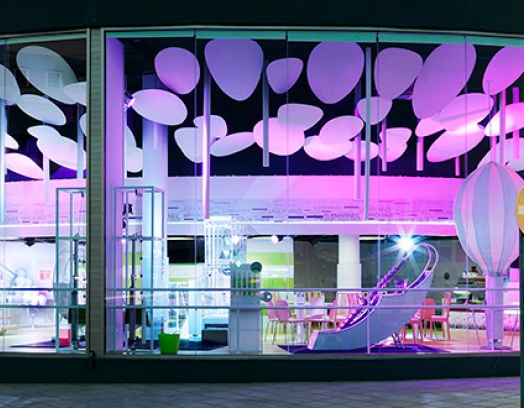From time to time our online magazine introduces to you different people, who have interesting life-stories, important role in shaping modern Cyprus society or outstanding abilities. Today we have another guest here, on CyprusForTravellers. He is an architect from Limassol, who has a long experience of designing objects all over the Greek world and an author of “Aroma Castle” — a building project in Pyrgos village. His vision, as well as the vision of other experts in this area will define the image of Cyprus of the future.
My name is Alexander Grek Melikidis. Alexander is my first name and Grek — the second name. But exactly the second one is the one I use the most in my daily life — it’s a “present” from my dad, some kind of a “stigma” for the rest of my life. He said to me once: wherever you will go, everyone will call you Greek anyway. So, why wait for that, I named you Grek first. And I’m happy with that, because if you are called “Greek” hundred times a day and your name literally means the same, everything is perfectly fine with your self-identity.
The history of Pontian Greeks has its roots in colonies of Athens in V century B. C. In XIX-XX centuries many Greeks, including my ancestors, came to Caucasus fleeing the Turkish genocide. In Tsalka, Georgia to be more precise (a region of the size and population similar to South Ossetia, includes a town and 22 villages) that is located 100 km away from Tbilisi, in the mountains 1600 m above the sea level. Armenians also came here together with Greeks and representatives of other oppressed people. So, the ethnic composition of the region was quite patchy. Caucasian Greeks are very unique people. Most part of us fluently speaks from two to five different languages. The most common are Greek, Georgian, Turkish and Armenian.
Over two centuries the Greeks have spent in Caucasus, they acquired a history, culture and traditions of the locals. Our ancestors almost immediately began to behave like a true Caucasians and fought back everyone who tried to mess up with them. However the relationships between our nations became warm after that. But despite this fact, Greeks remained for Georgians strange people beyond the understanding.
Every time people ask me “where are you from” I ask them to clarify what they mean, like “where I was born? Where I was growing up? Where I studied? Where I lived or where I live now?” In my case all these are completely different places. I’m so to say a composite character of a cosmopolite Greek. I was born in Caucasus, studied in the Volga region in Penza, have lived in Thessaloniki in Greece for a long time and now my home is Cyprus.
How I became an architect? I had no choice. Greeks value a good education. When I was young, about 60% of the citizens in my city have had university education. Around 50% of them were doctors and another half — builders. Older generation of my family was work-ing at the hospital, but I didn’t discover any affinity for that in me. Especially since I’m con-vinced that every Greek is a natural builder. There’s even a joke about the “Pontian curse” — if a Greek is living somewhere away from home for more than 5 days in a row, he begins to build a house there.
I’m in construction since I turned 14. I tried every kind of work you can find there. Carried bags with cement, painted walls, worked on road construction etc.
Later I enrolled at the Aristotle University of Thessaloniki where I entered the School of Architecture. You get a “hard” training of world-class level there. For example, many high school graduates from British architectural universities often have lower educational at-tainment. It’s interesting that each Aristotle University graduate is a unique specialist with their own wealth of knowledge.
I think that Greek architectural tradition is so strong because it’s in our genes. Another example: Greeks are world best experts in concrete constructions, especially when it comes about working with complex forms. The quality of the building object is the main feature that distinguishes Greek work. That is where our national trait — pride in your work comes into play. But of course, there are few nuances. Let’s take Cyprus. Greek influence along with Middle Eastern one has a huge impact here. Arabs have it’s own concept of “tomorrow”. Depending on the context “tomorrow” might mean literally “tomorrow”, but also “in a week” or “in a year” and even “never”. Cypriots happily adopted this approach so they have their own “tomorrow” now — avrio that has already become proverbial. In this case, you got to admit, you can’t always rely on Cypriots.
Things are different in Greece. If someone tells you “we will do it tomorrow”, you can be sure, everything will definitely happen next day.
-
Somehow I always pictured Cyprus as some very distant land in my head. My sister lives here and I visited her in 90es. Took part in a construction of a waterpark. For some reason they (waterparks) have had a very short life back than, have been opened and closed again and again. I just came over. Was not impressed at all and went back.
I have been invited here for a long time. Somehow all my relatives, friends, even my kin-dergarten friends, ended up living on the island. But I thought: what do you do there, in that “provincial” place? I travelled to Cyprus just for holidays three years ago. My daughter was born at that time, so I haven’t been sleeping properly. That’s why I haven’t been much outside for the first couple of days when I arrived to Cyprus, just slept all the time. Then I took a walk and estimated how everything changed here. Things that happened in Limassol in the last ten years haven’t been occurred in Thessaloniki for last hundred years. The urban development is more intense here. They don’t have buildings created with that level of technologies in Thessaloniki. However the population of Thessaloniki is more than one million people.
Yet another point that draw my attention: it usually took 40 minutes to get from the airport to my house in Thessaloniki, and in Cyprus it takes you the same amount of time to get to any city on the island. I liked that but again it was not enough to want to stay. I flew back again. After that I was offered an interesting project in Cyprus and I decided: okay, I’m moving. Because an architect is like a buffalo hunter: where buffalos run, runs a hunter. So it is with architecture, our “buffalos” are interesting projects.
I like the choice I made, altogether. However there are several flaws comparing to Thessa-loniki here. For example bureaucracy in Cyprus flourishes like it was in other countries 15-20 years ago. The same paperwork will take 2-3 months here and about 2-3 days in Thessaloniki.
On the other hand the architecture of Limassol is remarkable. Of course, I mean both old buildings and new high-rises going up into the sky. It was not long ago that the city was 2-5 floored. And then that sudden change of the image occurred. Skyscrapers are direct consequence of crisis in 2012es. All the legislations that specify building density stayed the same. The main architectural plan of the city implies the buildings in the city centre to be not higher than 5 floors. But after the crisis in 2012 there were many secondary legislations that allowed entrepreneurs to bend the norms of the low. In particular, people began to sell “free” meters. The thing is, the building density in the city is strictly defined by law, but if someone owns some land somewhere their can sell these “meters” to an entrepreneur, who decided to build a house in the other part of the city. That means “meters” are bought somewhere else while the built-up area is staying the same. Enterprising businessmen had a chance to use it. That is how high-rises started to grow.
As an ecologist (it’s a part of my architectural credo) I think that concentration of high-rise buildings on a limited area is better than covering every free patch of land with two floor cottages. When we are building a house, we take away another piece of nature that is unavoidable. It is called a footprint area. In practice this area is much bigger than the building we construct because we also need to maintain roads, bring public services and accompanying infrastructure. The more territories occupies the city, the wider is the network of corresponding infrastructure. Just imagine that the total area of all the roads in the modern city is much bigger than the built-up area. So, when we decide to build a house, we need a piece of land double the size of that house!
When the building goes up in the sky, I as an architect have an opportunity to preserve a lot of space around it. It is possible to have a park, a golf field and a gym inside one hundred-floor building. What means you can use an elevator instead of going by car to get to the place you need. And an elevator, as we both know, is way more cost-effective than a car.
There is another obvious positive aspect. The more a person pays for a house or an apartment, the more their want it to be of a good quality and has a certain architectural style. What in its turn leads to upgrade of the quality both aesthetical and technological. Of course high-rise buildings are more expensive. That’s why skyscrapers always have best levels of quality comparing to low-rise buildings. To my opinion, high-rises change the im-age of the city for the better and serve as a source of development and progress.
-
Concentrated built environment is a good thing, but, from the other hand, in such cities as Limassol, it occurs not through the big area with a high-rise building but through a small area with a high-rise building that does not have an essential infrastructure at all. There’s no parking lots, no surrounding area. That causes pressure on road network and discom-fort both for owners of the property in that building and for those, who live nearby.
Now we are speaking about high-rises but see them in negative light. The built-up area is often quite small what means buildings stand back to back with low-rises casting their shadows on them. It is not all rosy with parking lots too. As a conclusion: negative effects are pretty clear. As always, there should be balance between everything.
When we are speaking about the development of the city, there is another interesting ele-ment that influences it. Let’s call it “Russian factor”. Almost all Russian speakers I dealt with in Greece were mainly Greek or Armenian. Their mentality is close to the Greek one. And here we unexpectedly have a purely Russian market segment. That is very specific indeed. The first wave of Russians came to Cyprus 20-25 years ago. These people brought money with them, often of unknown source and origin. That was the reason why they were losing their money lightly. It was not a big deal to pay triple the price for everything. Like in that joke: a tourist asks how much “мороженое” (an ice cream in Russian) costs in a shop in Cyprus. And the answer is following: παγωτό costs 1 Euro, ice cream — 2 Euros and мороженое — 3 Euros. That is how it works everywhere here. So, those people paid overpriced costs wherever it was possible. Especially for real estates.
For example, cost of a contract with an engineer or architect was determined (and contin-ues to be like that nowadays) on the basis of the total cost of the building instead of the total amount of square meters that were built. So it’s beneficial for engineers when the building is more expensive. They start to shove stuff inside it. I saw a project of a twelve-floor building once that would have pillars with cross-section of 1x1 m. 45x45 cm would be more than enough. So we have triple unnecessary and pointless overexpenditure of concrete. But yeah, an engineer made some money.
The result is large capital flows for a product of questionable quality. It’s just about square meters, nothing more. The quality of such houses leaves much to be desired. The only thing that was monitored somehow were static properties of the building. Aside from that the quality was lower than all the existing standards. In part because the standards changed by the way. Now a constructive of a house amounted twice the one that is necessary.
When we build a house here, in Cyprus, we going 25-30% above the constructive norm when compared with Germany, for example. Let’s say we both are building 100 square meters. Our 100 square meters are 30% more expensive because of the constructive, which, by the way, ordinary people don’t even notice. For example, enhanced skeleton of the building reduces the interior space, adds weight to the whole construction, increases the cost and doesn’t generate any economical benefits. This also explains why the building pace differs so much from one country to another. In fact we are talking about a tremendous amount of money. And yes, houses in Cyprus calmly face 6-7 magnitude earthquakes (in theory — up to 8.5) nowadays. The worst thing that will happen — some plaster falls off. But it most painfully affects the economy.
The role of an architect in Cyprus is completely different for a Greek and for a Russian. Something that goes without saying for Greeks needs to be explained to the Russian citi-zens. I can relate to them. This generation is around my age: 40-50 years old. They “broke out” of soviet system and ended up in Russia of the 90es where no law had any force. In addition to that they are devotees of American law system, which implies 50 pages con-tracts for everything. It’s insignificant for Greeks. A triptych with the number and a phrase “I believe you” is more than enough for a court than any contract. And the most important thing is professional ethics of an architect that tightly controls all these moments. Loss of reputation could be such high that no one in their right mind is going to let down their cli-ents.
Russians need to visit a notary for every reason. In addition to that traditions in Cyprus are very strong. If you have your own private notary, it’s highly possible that you can find some act of sale signed by your granddad fifty years ago in their office. This is also true for architecture. Maintenance service, everything that has to be remade, all these things are responsibility of the same architect, even when the owner is changed. Local Greeks do not need any explanations of my part in this process. They know they can trust me because I’m the main ally against all the others. There are hesitations only from the Russian side, because they try to be cautious all the time.
To sum it up, it happened that my age and my education allow me to be that person, who can work both with Greeks and Russians and be aware of the specific and nuances. 40% of my projects are for locals and 60% for Russians. And again my cosmopolitan origin played a crucial role in the project of Aroma Castle.
I do not advertise myself; my clients come to me based on the advice. They were recom-mended to me, I was recommended to them. If no one vouches for you, the interest and trust to you drop automatically. Everyone values their own reputation. Nobody ever maintains authority out of nothing in this business. Everything is filtered out and discarded first in this process. It is never like that when someone says “it would be better to not work with these people” and you see them afterwards and think “oh, wow, what a nice people they are!” Actually, it never occurs to be the other way round too.
Dionisis Azovidis, a person whose authority I totally trust, approached me with a project of Aroma Castle apartment complex and I got interested. Why I want to draw your attention to it and go into more detail? First, it’s my ongoing project. Second, the project is truly significant and interesting. I have been working on it for a year already and I had to redo the whole draft and layout 3 times during this period (several pieces of land were bought during the process, so the built-up area has grown twice). It’s quite challenging but creative work. A year ago I was invited to Pyrgos village (that, in the neighbourhood of Limassol) to check the place for the future complex and to express my views. First thing that I noticed was the location — we were standing on the “top” of the village. It was immediately clear to me that we can create something really good there. Improve the environment. What am I talking about? Pyrgos is an ancient village. It is about 4000 years old. It was always quite “alive”, however, being an historical place, it has never had a historical centre! Many villages have at least some tiny square, where the locals gather at every opportunity: to celebrate holidays or just to drink Cyprus coffee. There’s no such place in Pyrgos at all. That’s how we got the idea to build pseudo-historical centre. By all rights, it should be exactly on the territory of the constructing site. By the way, it is unknown, why the village didn’t have any.
We are planning our apartment complex to be a good economic cluster. 150-200 people will live here, what is actually quite much for Pyrgos with its population of 2500. Housing costs in the surroundings will increase and taverns, cafes and restaurants will get new customers. We hope this project will have a knock-on effect on the growth and development of the village.
When such kind of apartment complexes are built somewhere in the outskirts on the hills, people who live there are not integrated in the life of the village. They go to the city for shopping and on all other important matters. Our apartments will be located in the very heart of the village. Accordingly, there is no need to go to the city to buy every single thing because all the cafes, clothes shops and supermarkets are within walking distance, about 50-100 meters away. That also means there won’t be any traffic congestion, what is an acute problem nowadays.
Why the project is called Aroma Castle? Well, every building should have its own legend. The shape is not everything, it doesn’t have any self-sustainability. If there is no idea the project is based on, it turns into common formality. The name Aroma Castle was born at the design stage, when one of the owners of the project decided there should be an olive tree growing in the middle of the yard. And, as we all know, olive — is one of the most im-portant and significant natural ingredients for production of aromatic oils. Someone immediately remembered the fact that Pyrgos was famous as a centre of aromatic oil and perfume industry practically since the Minoan civilization. Plus Pyrgos, the name of the village itself, is translated as “tower”. What means that most likely there was a tower there back then. That is what inspired the idea of “castle”. Taking into account that we are going to build not just an ordinary apartment complex but a pseudo-historical centre of the village, castle as a concept suits perfectly for that purpose. Another image that inspired us was a Tuscan village. These villages formed an enclosed space, were walled off from the outer world so that no one could get inside uninvited.
The apartment complex itself is a real fortress. Neither a thief, nor a random visitor can get inside. The whole territory is divided into inside and outside areas. The only way inside is through the gates (main entrance and underground level), which are equipped with cameras transmitting images to the security room. Outside area with a park and a playground is available both for people living in complex and for their neighbours. You might ask me, but how it is coupled with the idea of historical centre of the village then, where everyone who wants can get in? Yes, Aroma Castle itself will stay closed. But it will be a small square in front of it. And we are planning to promote this place as a pseudo-historical centre.
My teachers always told me: “build out of what lies under your feet”. It’s a great approach in terms of ecology and unity of architectural ensemble. The houses could be ultra modern, but also fit in the landscape like its natural part.
When we are talking about design of apartment complex or private residence, you should always ask yourself one question: “Would I love to live in such a house?” And my answer is yes in this case. I’m a typical representative of the target audience: a family man with quite good finances, who has children of school age. There will be a yard inside the apartment complex that has a lock. The windows of all the apartments are facing the yard and their own small gardens. That means a child can play outside by their own and stay under supervision at the same time. Very few residences can offer that option. Parents know how important that is. What about the yard itself? It’s a cozy place with a fountain and shade of the trees. By the way there will be no cars there, they all will be parked underground.
Many forget that people usually by an apartment to live 20-40 years there and not 5 or something around it. Today you can easily take upstairs but it could be a problem in 30 years. That’s why in Aroma Castle we provide 5 elevators for every 4-7 apartments, going from the underground parking to the roof. Here is how it works: you leave your car on your individual parking lot and you immediately get to that technical floor that also has small storage rooms for every apartment and access to any elevator. There is no difference in height, so people with disabilities can get to all the levels of the complex without any trouble. That’s what we call architecture made for people.
Apartments in the ground floor have small yards. Those on the top have living space on the roof. The roof offers an amazing view of the sea; you can have a hot tub or a garden there. What is more important, the whole complex is situated on a hill, so nothing will block the view even later in the future. If all goes well, we will be ready to open the main gates and welcome first owners in few years. But you can already buy an apartment within next months. Why it is beneficial to buy an apartment in Aroma Castle? Of course, you can find something similar somewhere in the city. Take for example an apartment with the similar characteristics in Limassol. An apartment in Aroma Castle will be 30 m bigger comparing to that in the city, offer you the same comfort level, 1,5-2 times lower the price (for 1 square meter) and twice as better environment because of its beautiful location on the hill.
Our competitors are companies that sell accommodations similar by the form but not by the quality. Usually they will offer it at about 5000 Euros for 1 square meter. Our price will be about 2800-3200 for a square meter, I guess. Using simple calculations we can assume that the difference in 7 minutes (it takes 7 minutes to get from Pyrgos to Limassol) will save you money for a whole house. By the way it takes only 3 minutes to drive from Aroma Castle to the sea. Another plus point, people can buy an apartment and let it for rent. The demand for renting a residence in Pyrgos is huge, but the supply is almost zero. All the houses are old and occupied.
I hope that Aroma castle will be a starting point in development of Pyrgos village. We can’t let this beautiful place with 4000 years of history to stay in the shadows of such a huge and much hyped metropolis as Limassol. We must preserve and share country life and culture especially since it distinguishes from metropolitan by quality and functionality!
